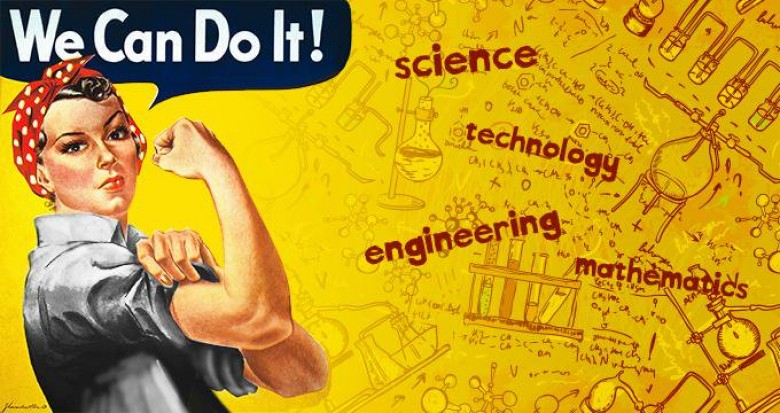You can never have too much of a good thing, right? And recognizing the accomplishments of women is a very good thing. So are equality and parity, by the way.
Women's History Month in Buffalo officially kicks off today at the Downtown Library. Free 5:00pm “Women in Science” movie matinees will be shown every Thursday in March. On March 5, the 14th Annual Women’s History Month Big Band Concert featuring the Ladies First Jazz Big Band, will rock the Tralf. On March 10, both WIN and NAWBO will host networking events, and the WNY Women's Foundation will host Pints and Pads to benefit homeless women. On March 19, the 6th Annual Women Making History Gala Honoring WNY Women who Walk in Footsteps of Greatness will take place. Watch Frida at Daemen College on March 21, and two more networking events by WIN and Spree Magazine will take place on March 23. The Buffalo History Museum is featuring a Buffalo Dolls and Women's History lecture about the contributions of WNY women to the war effort during WWII. Whew!
But wait, there's more.
Tuesday, March 8 is International Women's Day. El Buen Amigo has a full "International Women’s Month" planned in an interesting melding of Women's History Month and International Women's Day. In partnership with the Buffalo State Writer’s Network, they have created five exhibits: Women Birthing, Women at Work, Women Aware of Mental Health, Women during Wartime, and Women in Shakespeare’s Time. There will also be a "Pledge for Parity" table, where guests can agree to gender parity. Quite appropriately, proceeds from the exhibits will benefit the YWCA of WNY.
So where did all this rah-rah about women come from? And why is there both a day and a month set aside for it?
The whole business actually started on February 28, 1909, in New York City. The first Women’s Day was a national observance organized by the Socialist Party to honor the one-year anniversary of a garment workers strike in 1908. By 1911, Women’s Day had spread through Europe and grown into an international observance.
Fast forward to 1975. Feminism was gaining momentum, so the U.N. General Assembly declared 1975 International Women's Year. In fact, it made 1976-1985 the U.N. Decade for Women and organized the first World Conference on Women. This was when March 8 was declared International Women's Day as a "annual opportunity to reflect on progress made, to call for change and to celebrate acts of courage and determination by ordinary women who have played an extraordinary role in the history of their countries and communities." Not bad.
But wait, there's still more.
In the U.S., feminist activists took issue with how history books largely left out the story or contributions of women in America. During the 1970s, a Sonoma County, California group started revising the school curriculum and created a “Women’s History Week” in 1978, timed around International Women’s Day. As the Week gained popularity across the nation, organizers lobbied Congress and President Jimmy Carter proclaimed March 2-8, 1980 the first national Women’s History Week.
In 1980, the National Women’s History Project was founded. The NWHP started by leading a coalition that successfully lobbied Congress to designate the entire month of March as National Women’s History Month. The theme this year is "Working to Form a More Perfect Union: Honoring Women in Public Service and Government."
The 2016 theme for International Women’s Day is “Planet 50-50 by 2030: Step It Up for Gender Equality,” also expressed as the hashtag #PledgeForParity. There's an entire toolkit for hosting International Women's Day events locally. The UN has also created Women's Footprints in History, a compelling online timeline with some very unexpected trailblazers. Check out Agnodice, the first female gynecologist. In 400 BC!
In May (not March), the White House will host a summit on The United State of Women. And the National Women’s History Museum is online all year long. Soon, I hope, it will find its rightful place on the National Mall.
In Buffalo, we celebrate Women's History Month and have turned International Women's Day into an entire month. More important than the festivities, however, are equality and parity. This is the month not just to celebrate, but also to agitate. And then keep insisting all year long.

